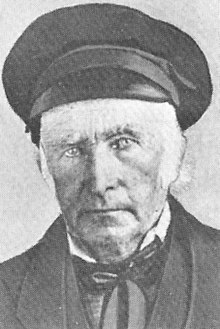Christopher Harrison
| Christopher Harrison | |
|---|---|
 |
|
| 1st Lieutenant Governor of Indiana | |
|
In office November 7, 1816 – December 17, 1818 |
|
| Governor | Jonathan Jennings |
| Preceded by | Position established |
| Succeeded by | Ratliff Boon |
| Personal details | |
| Born | c. 1780 Cambridge, Maryland |
| Died | 1868 (aged 87–88) Talbot County, Maryland |
| Political party | Democratic-Republican Party |
| Alma mater | St. John's College |
Christopher Harrison (1780–1868) was the first Lieutenant Governor of Indiana, serving with Governor Jonathan Jennings. Harrison was briefly acting governor while Jennings' was conducting negotiation with the native tribes in northern Indiana, and later resigned from office over a dispute with Jennings. Harrison became a Quaker in his later life and freed all the slaves he inherited from his family. He lived a long life for his era, and died at age 88. There is no known relationship between Harrison and an early territorial governor of Indiana, William Henry Harrison.
Christopher Harrison was born in Cambridge, Maryland sometime around 1780, the son of Colonel Robert Harrison and Milcah Gale who were important and wealthy land owners. He attended St. John's College in Annapolis, Maryland. After his graduation Harrison worked as a clerk for William Patterson, the president of the Bank of Baltimore and became a tutor for Patterson's daughter, Elizabeth. Hoosier tradition holds that Harrison courted Elizabeth and she at one point promised to marry him. However the match was opposed by her father who forced her to break off the engagement. Harrison secretly continued to carry on a love affair with Elizabeth for some time. In 1803, Elizabeth was introduced to Jérôme Bonaparte who was visiting Baltimore with the French Ambassador. Elizabeth eventually married Jérôme Bonaparte by whom she had a child. After a brief marriage Jerome abandoned Elizabeth at the request of his brother Napoleon Bonaparte, the Emperor of the French. Harrison considered his reputation tarnished from this affair and he left Maryland and moved to Indiana around 1808. He settled near Hanover, Indiana where he lived for five years as a hermit in his cabin with only a dog for company.
...
Wikipedia
